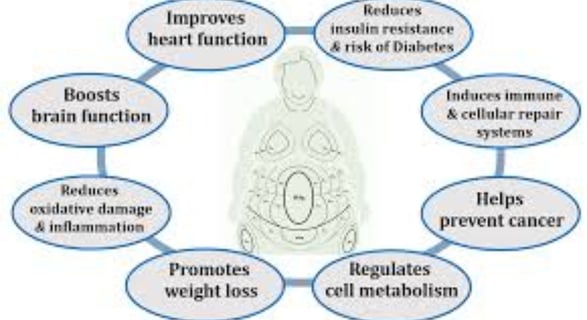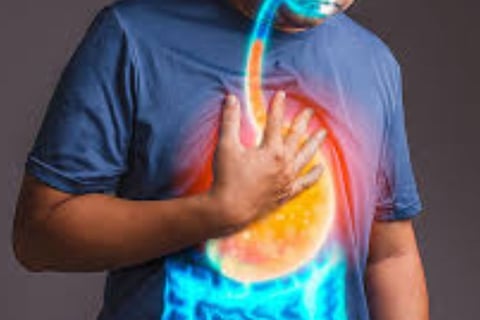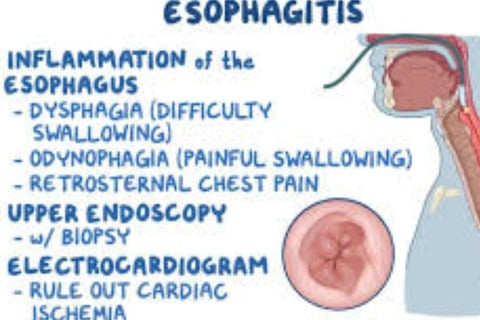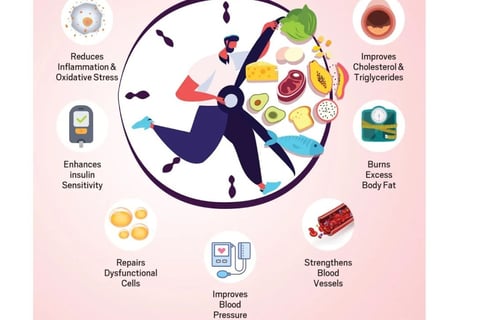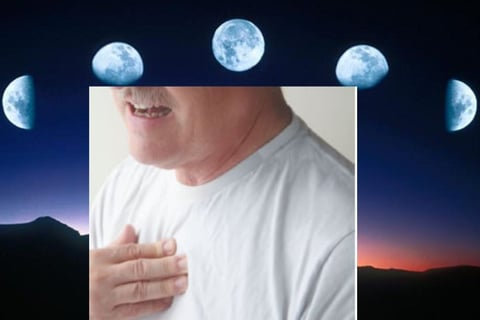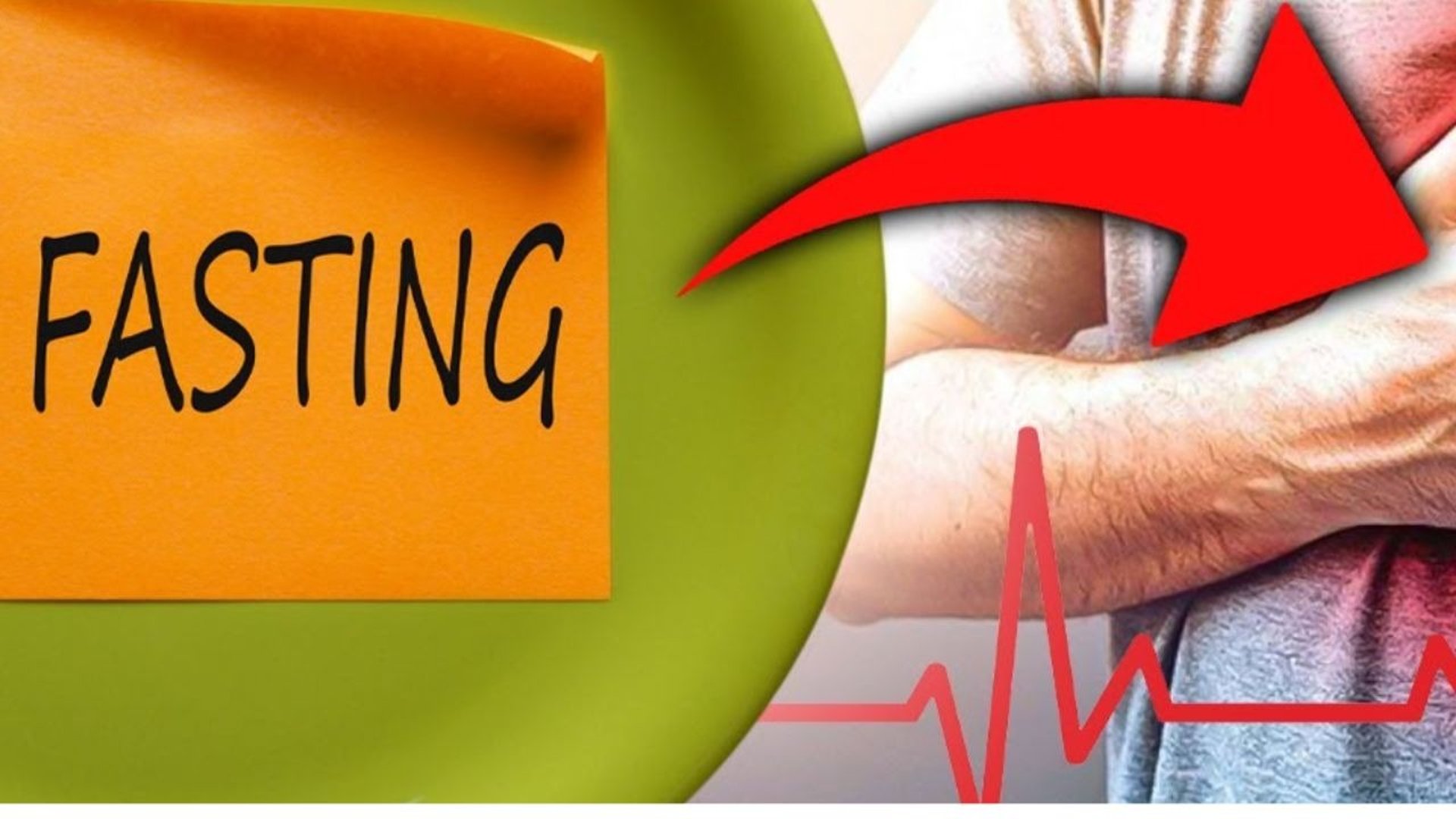
fasting on white days protect against chest problems
Discover the potential benefits of fasting on white days for preventing chest problems, respiratory diseases, heart diseases, and more. Learn about the impact of fasting on cortisone, prayer, and o...
CARDIOVASCULAR
Dr Hassan Al Warraqi
5/14/2024
fasting on white days protect against chest problems
The Prophet, may God bless him and grant him peace, said: “Fasting three days of every month will go away the heat of the heart” (i.e., his anger and hatred)
This is the opinion of jurists, so what is the opinion of doctors
Fasting and its effect on chest problems
Fasting helps reduce the occurrence of allergic asthma attacks and bronchitis
Reducing the chances of developing pulmonary embolism and lung cancer
Chest allergies (bronchial asthma
Fasting reduces cholesterol and harmful fats, which contributes to stimulating blood circulation in the body and lungs, thus improving the performance of lung functions and raising the level of oxygen in the blood
Chest pain is a scary thing, especially when it resembles heart pain, and the cause of chest pain and discomfort is often problems in the digestive system
“Non-cardiac chest pain” is recurrent and chronic chest pain that appears to be in the heart, but cardiac tests prove that it is not. The location of the pain is usually behind the breastbone (sternum), and near the heart
Acid reflux into the esophagus: “Gastroesophageal reflux disease (GERD)” is the most common cause of non-cardiac chest pain, reflux (regurgitation) of acidic food or liquids into the mouth, pain in the upper abdomen or chest, difficulty swallowing, and a feeling of Lump in the throat
Stomach ulcers and infections: “duodenum”, and each of them can sometimes cause symptoms similar to those of angina or a heart attack
In fact, the pain resulting from a stomach (or duodenal) ulcer is described as a sharp or stinging pain in the stomach area, but it may sometimes cause chest pain. There may also be a rapid heartbeat or palpitations
The pain moves from the source area to other distant parts of the body, such as the neck, back, and left arm
Increased cortisol, which causes the heart rate to increase significantly
The “classic” symptoms of IBS, such as abdominal pain, bloating, flatulence, and bouts of constipation and diarrhea, tend to be triggered by stress, and can be worsened after meals
It causes gas pain that a patient may feel in the chest. It may be difficult to know whether a person is experiencing chest pain due to gas, other conditions such as acid reflux, or something more serious such as a heart attack
Such as lower back pain, constant lethargy, chest pain, urinary frequency or urgency, and in females, gynecological symptoms
Esophageal muscle spasms: Esophageal spasms are abnormal, painful or squeezing contractions that occur inside the esophageal tube. The esophagus is basically a muscular tube, and its primary function is to transport food from the mouth to the stomach
Severe chest pain (chest squeeze). This may last from a few minutes to several hours. Some people may confuse this pain with angina pectoris pain. There is also difficulty swallowing foods and liquids, which is sometimes related to swallowing certain types. Most of these types are very hot or cold liquids. Also the feeling that something is stuck in the throat
Esophageal Hypersensitivity: A functional sensory disorder in which the muscles, nerves, and receptors in the wall of the esophagus are excessively sensitive
Patients who have normal gastroesophagoscopy results, a normal esophageal tissue biopsy sample, and normal gastric acidity, yet have hypersensitivity of the esophagus to acids
(Functional Heartburn)", more than 90 percent of the causes of suffering from heartburn that do not respond to taking medications to reduce stomach acid production twice a day (and not just once a day as usual), which are known as "proton pump inhibitor medications.” Pump
It is often associated with some type of comorbid psychiatric disorder
Esophagitis: It is an irritation of the esophagus, and it can cause chest pain when eating, especially behind the sternum, as well as difficulty and pain in swallowing. Stomach acids reflux into the esophagus, exposure to microbial infections, incorrect intake of oral medications, and allergies
Another reason is the sliding of the upper part of the stomach into the chest (above the diaphragm), and this is known as a hiatal hernia, which leads to gastroesophageal reflux
“Eosinophilic esophagitis,” which occurs when there is a high concentration of eosinophils (a type of white blood cell) in the esophagus. It most often occurs in response to an allergen, such as dairy foods, eggs, wheat, soy, pistachios, and seafood. Or due to other types of allergies not related to eating certain foods
Other times, this inflammation of the esophagus occurs as a result of taking some types of medications. If one of us swallows a tablet of medicine with a small amount of water or without water, the tablet itself or part of it may get stuck inside the esophagus, such as the painkillers aspirin and ibuprofen, and antibiotics, such as tetracycline and doxycycline. The presence of a bacterial, viral, or fungal infection in the esophageal tissue may lead to esophagitis
Pancreas and Gallbladder: Acute pancreatitis is usually caused by gallstones or large amounts of alcohol
Often with high blood triglycerides. A person may notice pain in the upper abdomen, which may begin suddenly or slowly, and be mild or severe, and last for several days, as well as abdominal bloating, vomiting, nausea, pain extending to the back, and also chest pain
If you have pain in the lower chest that gets worse when lying down or leaning forward, the problem may be in the pancreas. Located in the upper left side of the abdomen. The pain also gets worse after eating, and one may become dizzy when standing
Chest pain can also be a sign of gallbladder problems, especially if the pain appears in the lower chest or upper chest areaTo the right side of the abdomen, after eating a heavy meal. Additional symptoms include nausea, fever, chills, urine that is darker than usual, and changes in bowel movements (light-colored stools or diarrhea)
Reducing the risk of heart failure
Reducing and controlling blood pressure
Reducing the level of harmful cholesterol and increasing the levels of beneficial cholesterol, which will contribute to a lower risk of atherosclerosis and coronary heart disease
Contributing to weight loss for heart patients, which will reflect positively on heart health and functions
Fasting increases the health of the heart and its vessels and improves its functions, as fasting greatly protects the heart from heart attacks
In addition, fasting greatly helps prevent heart failure
Reducing heart diseases resulting from high blood pressure
Especially since fasting greatly improves the heartbeat and its regularity. Let us not forget the influence of the Qur’an and prayer
keywords
Does fasting on white days, cause chest problems, respiratory diseases, heart diseases, psychological diseases, fasting, cortisone, prayer, the Qur’an,heart attacks,allergic asthma attacks,heart failure,
fasting on the White Days protecting against chest diseases
diving deeper into the topic . additional scientific insights, cultural context, practical applications, and spiritual dimensions, while maintaining SEO optimization with keywords like "White Days fasting," "chest diseases," "heart health," "intermittent fasting," "nutrition and health," and "Islamic fasting benefits." The text is comprehensive, engaging, and enriched with references to studies, expert opinions, and actionable advice.
Fasting on the White Days Protects Against Chest Diseases
A Comprehensive Health and Nutrition Guide
This article provides an exhaustive exploration of fasting on the White Days and its protective effects against chest diseases, delving into general health, cardiovascular diseases, nutrition, and various fasting methods, including intermittent fasting and the Islamic practice of fasting on the White Days (13th, 14th, and 15th of each lunar month).
We examine how fasting impacts the body and mind, supported by scientific evidence, contemporary research, historical context, and practical recommendations for optimizing health.
Fasting and Health: A Holistic Perspective on Nutrition and Modern Diseases
Rising Rates of Heart Disease and Diabetes Among South Asians
Research highlights that South Asians (including Indians, Pakistanis, and Bangladeshis) face a coronary heart disease prevalence three times higher than non-Asians in the United States, making them the global leaders in cardiovascular diseases and diabetes.
Prediabetes Epidemic: Many South Asians unknowingly suffer from prediabetes or diabetes due to inadequate diagnostic methods that focus solely on blood sugar levels, overlooking the root issue: hyperinsulinemia (elevated insulin levels).
Root Cause: This stems from excessive consumption of processed foods—refined sugars, sodas, fast food—and frequent eating patterns without sufficient breaks.
Experts liken South Asians to "cacti living in rainforests," suggesting their genetics, evolved on a diet low in carbs and high in fiber, clash with the modern, sugar-heavy food environment.
High Blood Pressure as a Symptom, Not a Disease
Hypertension isn’t a standalone condition but a symptom of underlying issues like obesity, prediabetes, kidney dysfunction, or sleep apnea.
Waist-to-Hip Ratio: Measuring this ratio is more critical than BMI, as excess visceral fat correlates with hormonal imbalances and insulin resistance, key drivers of heart disease.
Debunking the "Calories In, Calories Out" Myth
The traditional "calories in, calories out" model oversimplifies health. Food quality and its impact on insulin levels matter more than mere calorie counts.
Processed Foods: Laden with added sugars, hydrogenated vegetable oils (e.g., palm oil), and preservatives, these trigger chronic inflammation and insulin resistance.
Red Meat Isn’t the Main Culprit
Contrary to popular belief, red meat isn’t the primary cause of heart disease. High rates among South Asian vegetarians point to refined sugars and processed vegetable oils as the true "villains."
Healthy Alternatives: Use ghee or sesame oil for cooking instead of hydrogenated oils, as they offer beneficial fats and higher smoke points.
Wheat and Ancestral Diets
Wheat wasn’t a staple in the traditional South Asian diet (which relied on rice, lentils, and vegetables). Overconsumption today contributes to chronic inflammation and insulin resistance.
Chronic Inflammation and Gut Health
Chronic Inflammation: Linked to conditions like joint pain, brain fog, and early dementia, it’s fueled by processed diets and stress.
Microbiome: Gut health hinges on beneficial bacteria, nourished by plant-based fiber and fermented foods (e.g., yogurt, kimchi).
The Power of Fasting
Fasting: Restores insulin sensitivity, enhances the microbiome, and reduces inflammation, making it a potent tool for preventing heart disease and diabetes.
Practical Health and Nutrition Tips
Adopt a diet of whole, unprocessed foods—vegetables, legumes, whole grains.
Minimize sugar and hydrogenated oils, opting for extra virgin olive oil (for salads, not cooking) or ghee for high-heat cooking.
Limit fruit intake due to fructose, which can drive insulin resistance and fat storage.
Prioritize resistance training (e.g., weightlifting) over excessive cardio.
Consider supplements like Vitamin D3, Omega-3, Vitamin K2, and berberine, guided by medical tests.
Ensure adequate sleep (7-8 hours) and sun exposure (10 minutes daily) for natural Vitamin D synthesis.
Sources
Study: American Heart Association Journal on South Asian heart disease prevalence.
Book: The Obesity Code by Dr. Jason Fung on hyperinsulinemia.
Fasting on the White Days: Health and Spiritual Benefits
Prophetic Tradition
The Prophet Muhammad (peace be upon him) said: "Fasting three days each month, praying two rak’ahs of Duha, and performing Witr before sleeping" (Sahih Bukhari, Hadith 1178). The White Days—the 13th, 14th, and 15th of every lunar month—are a recommended Sunnah with immense spiritual rewards.
Health Benefits for Chest Diseases
Respiratory System:
Fasting reduces allergic asthma attacks and bronchitis by lowering systemic inflammation.
It enhances lung circulation, boosting oxygen levels and reducing risks of pulmonary obstruction and lung cancer.
Digestive-Related Chest Pain:
Non-cardiac chest pain often stems from acid reflux, stomach ulcers, or esophagitis. Fasting calms the digestive tract, potentially alleviating these issues.
Irritable Bowel Syndrome (IBS) can cause chest discomfort due to gas; fasting regulates digestion, offering relief.
Cardiovascular Health:
Fasting lowers LDL cholesterol and raises HDL cholesterol, supporting heart function and reducing heart failure risk.
It balances cortisol (stress hormone), stabilizing heart rate and blood pressure.
Other Conditions:
Issues like esophageal spasms, hiatal hernia, pancreatitis, or gallbladder problems may cause chest pain. Fasting’s effects vary by condition, often improving digestion-related symptoms.
Spiritual and Psychological Benefits
Fasting purifies the heart from impurities (referred to as "wahar" by Ibn al-Qayyim in Zad al-Ma’ad), fostering tranquility and spiritual closeness to Allah.
It reduces stress, enhances mental clarity, and strengthens emotional resilience.
Sources
Sahih Bukhari, Hadith 1178.
Study: Respiratory Medicine Journal on fasting and lung health.
Intermittent Fasting and Time-Restricted Eating
Defining Intermittent Fasting
Time-Restricted Eating (TRE): A form of intermittent fasting limiting food intake to a specific window (e.g., 4-12 hours daily). The popular 16:8 method involves eating within 8 hours and fasting for 16.
Benefits include improved metabolic markers like blood pressure, blood sugar, and cholesterol levels.
Prolonged Fasting
A 3-day water fast triggers autophagy (cellular cleanup), boosts stem cell production, and elevates Brain-Derived Neurotrophic Factor (BDNF), supporting brain and body health.
Sources
Study: New England Journal of Medicine on intermittent fasting and metabolism.
Fasting’s Impact on Skin Health
Skin as a Health Indicator
The skin, the body’s first defense, reflects internal health, influenced by diet, inflammation, and hormones.
Caloric Restriction: Studies (Journal of Dermatology) explore how fasting affects collagen production, skin aging, and inflammatory skin conditions (e.g., eczema, psoriasis, acne).
Ramadan Fasting: A well-known caloric restriction model, its skin benefits are still under investigation.
Rare conditions like prurigo pigmentosa may link to ketosis from fasting.
Sources
Journal of Investigative Dermatology on fasting and skin health.
Conclusions and Recommendations
The Role of Fasting and Nutrition
Modern diets rich in processed foods, sugar, and hydrogenated oils drive heart disease and diabetes, especially among South Asians.
White Days fasting protects against chest diseases, enhances overall health, and carries profound spiritual rewards as a Prophetic Sunnah.
Practical Recommendations
Embrace whole foods, increase fiber and fermented foods, and cut sugar intake.
Practice intermittent fasting or White Days fasting to improve insulin sensitivity and reduce inflammation, consulting a healthcare provider.
Prioritize sleep, exercise, and mental well-being.
Sources
Quran, Surah Al-Baqarah 2:183 (benefits of fasting).
The Diabetes Code by Dr. Jason Fung.
SEO Keywords
Primary: White Days fasting, chest diseases, heart health, intermittent fasting, nutrition and health, Islamic fasting benefits.
Secondary: South Asian heart disease, insulin resistance, autophagy, skin health benefits, Prophetic Sunnah, chronic inflammation.
Fasting on the White Days Protects Against Chest Diseases
diving deeply into each question with detailed explanations, scientific insights, cultural context, and practical advice.
This version is SEO-optimized with keywords like "White Days fasting," "chest diseases," "coronary artery disease," "intermittent fasting benefits," "South Asian health risks," and "Islamic fasting practices" to enhance searchability and engagement.
Frequently Asked Questions (FAQs) About Fasting on the White Days Protecting Against Chest Diseases
This comprehensive FAQ section addresses key questions about fasting on the White Days and its protective effects against chest diseases, exploring health, nutrition, and spiritual dimensions. Backed by scientific research, Islamic teachings, and expert insights, we provide an in-depth guide to understanding this practice and its broader implications.
1. Why Is Coronary Artery Disease More Prevalent and Severe Among South Asians?
South Asians (including Indians, Pakistanis, Bangladeshis, and Sri Lankans) face a threefold higher risk of coronary artery disease (CAD) compared to non-Asians in the United States, a trend consistent globally, positioning them as the world leaders in cardiovascular disease prevalence (American Heart Association, 2020).
Genetic and Environmental Mismatch: Experts describe South Asians as "cacti living in rainforests," meaning their genetics—adapted over millennia to a diet low in refined carbs and high in fiber (e.g., lentils, millets, vegetables)—are ill-suited to modern Westernized diets rich in processed foods, refined sugars, and frequent meals. This mismatch drives insulin resistance and hyperinsulinemia, key precursors to CAD.
Lifestyle Factors: Urbanization and sedentary lifestyles amplify this risk, with South Asians consuming high amounts of sugary drinks, white rice, and fried snacks, often lacking breaks between meals.
Statistical Insight: Studies show South Asians develop CAD a decade earlier than other populations, with a 50% higher mortality rate from heart disease (Journal of the American College of Cardiology, 2018).
Cultural Context: Traditional South Asian diets once emphasized whole foods, but colonial influences and globalization introduced processed wheat and hydrogenated oils, exacerbating health disparities.
SEO Keywords: Coronary artery disease South Asians, insulin resistance, processed food risks, heart disease prevalence.
2. What’s the Main Flaw in Current Diabetes Diagnosis Methods, and Why Is Hyperinsulinemia More Harmful Than High Blood Sugar?
Current diabetes diagnosis relies on blood sugar thresholds (e.g., fasting glucose >126 mg/dL), but this approach is critically delayed, missing early damage.
Flawed Detection: Arterial damage begins years before blood sugar reaches diagnostic levels, driven by hyperinsulinemia—chronically elevated insulin—rather than hyperglycemia alone. Dr. Jason Fung, in The Diabetes Code, notes that 80% of cardiovascular complications stem from insulin excess, not just sugar spikes.
Why Hyperinsulinemia Matters: High insulin levels stiffen arteries (atherosclerosis), promote plaque buildup (calcification), and trigger inflammation, even in prediabetic stages. By the time diabetes is diagnosed, significant vascular harm has occurred.
Scientific Evidence: A 2021 study in Diabetes Care found that hyperinsulinemia doubles heart disease risk independently of blood sugar levels, highlighting the need for earlier insulin-focused screening.
Practical Implication: South Asians, prone to insulin resistance due to genetics, often go undiagnosed until late stages, underscoring the urgency of monitoring insulin rather than waiting for sugar spikes.
SEO Keywords: Diabetes diagnosis flaws, hyperinsulinemia dangers, insulin resistance health risks, early heart disease detection.
3. What Are the Harmful Effects of Processed Foods and Vegetable Oils on Human Health?
Processed foods and vegetable oils wreak havoc on health, particularly the cardiovascular system.
Processed Foods: Items like refined flour breads, sugary snacks, and sodas are digested rapidly, causing sharp insulin spikes. This overworks the pancreas, leading to insulin resistance over time. A diet high in these foods also lacks fiber, disrupting gut health and fueling chronic inflammation.
Vegetable Oils: Seed oils (e.g., soybean, corn, sunflower) are rich in omega-6 fatty acids, which are pro-inflammatory when overconsumed. Their industrial processing involves chemicals (e.g., hexane) and high heat, producing trans fats and oxidized compounds. Heating these oils, especially in microwaves or deep frying, amplifies their toxicity, contributing to arterial plaque and heart disease.
Comparative Harm: Unlike traditional fats like ghee or olive oil, which resist oxidation, vegetable oils destabilize cell membranes and increase oxidative stress (Nutrition Reviews, 2019).
Cultural Note: In South Asia, the shift from ghee to cheap vegetable oils (e.g., palm oil) in cooking has paralleled rising heart disease rates, reflecting a dietary betrayal of ancestral wisdom.
SEO Keywords: Processed foods health risks, vegetable oils dangers, trans fats impact, inflammation and diet.
4. Why Does the Speaker Emphasize Coronary Artery Calcium Scoring and Intermittent Fasting?
The emphasis on coronary artery calcium (CAC) scoring and intermittent fasting reflects their pivotal roles in heart health.
CAC Scoring: This CT-based test directly measures calcium deposits in coronary arteries, offering a precise indicator of CAD presence and severity. Unlike stress tests, which only detect blockages over 70%, CAC identifies early atherosclerosis, enabling proactive intervention. A score above 100 signals significant risk (Journal of the American College of Cardiology, 2020).
Intermittent Fasting: Fasting lowers insulin levels, reverses insulin resistance, and enhances cellular repair processes like autophagy. It also improves gut microbiome diversity and reduces systemic inflammation, key factors in preventing chest diseases. Studies (Cell Metabolism, 2019) show fasting reduces triglycerides and LDL cholesterol, directly benefiting heart health.
Synergy: CAC scoring pinpoints existing damage, while fasting mitigates its progression, making them a powerful duo for South Asians at high CAD risk.
SEO Keywords: Coronary artery calcium scoring, intermittent fasting benefits, heart disease prevention, insulin sensitivity.
5. What Are the "White Days" in Islam, and What Are the Virtues of Fasting Them According to Islamic Sources?
The White Days (Ayam al-Bid) are the 13th, 14th, and 15th days of each Islamic lunar month.
Naming Origin: Called "white" because the full moon illuminates the night brightly, symbolizing purity and clarity.
Islamic Virtue: The Prophet Muhammad (peace be upon him) said, "Fasting three days each month is like fasting an entire lifetime" (Sahih Bukhari, Hadith 1178). He consistently fasted these days, emphasizing their spiritual merit. Another narration states fasting them "removes rancor from the heart," linking physical abstinence to emotional purification (Sunan Abu Dawud).
Health Connection: Beyond spiritual rewards, this Sunnah aligns with modern science, offering breaks from overeating that protect against chest diseases like heart and lung issues.
Cultural Practice: Widely observed in Muslim communities, White Days fasting reflects a balance of faith and wellness, rooted in Prophetic tradition.
SEO Keywords: White Days fasting Islam, Sunnah fasting virtues, Islamic fasting practices, spiritual health benefits.
6. What Are the Potential Effects of Fasting (Including Ramadan) on Skin Health?
Fasting, including Ramadan and White Days, has varied effects on skin health, blending short- and long-term impacts.
Long-Term Benefits: Caloric restriction enhances skin thermoregulation, boosts stem cell renewal, and reduces oxidative stress, potentially delaying aging (Journal of Investigative Dermatology, 2021).
Short-Term Challenges: Brief fasts may slow wound healing and reduce collagen production due to limited nutrient availability, though this reverses with refeeding.
Inflammatory Conditions: Studies show improvements in eczema, psoriasis, and acne during fasting, possibly due to immune modulation and inflammation reduction (Dermatology Research and Practice, 2020). Ketosis from fasting may also trigger rare conditions like prurigo pigmentosa.
Ramadan Context: As a month-long fast, Ramadan’s caloric restriction mirrors intermittent fasting benefits, though hydration and nutrition timing require careful management to avoid dryness or flare-ups.
SEO Keywords: Fasting skin health, Ramadan fasting effects, inflammatory skin diseases, caloric restriction benefits.
7. Are There Special Precautions Stroke Patients or Those with Chronic Illnesses Should Take When Fasting?
Yes, individuals with stroke history or chronic conditions (e.g., diabetes, hypertension, atrial fibrillation) must exercise caution.
Medical Consultation: Consulting a neurologist or physician is essential to assess fasting safety. Factors include medication timing (e.g., anticoagulants), dehydration risk, and blood sugar or pressure fluctuations.
Risks: Fasting can destabilize glucose levels in diabetics or exacerbate dehydration in stroke survivors, increasing clot risk.
Adjustments: Doctors may adjust dosages or recommend alternative worship practices (e.g., charity) if fasting poses danger (Islamic Medical Association Guidelines).
Case Study: A 2022 review in Stroke Journal found fasting safe for some stable patients but risky for those with recent strokes or uncontrolled conditions.
SEO Keywords: Fasting precautions stroke, chronic illness fasting safety, diabetes and fasting, medical advice fasting.
8. What Is Time-Restricted Eating (TRE), and Is It a Healthy Strategy for Everyone?
Time-Restricted Eating (TRE) is a type of intermittent fasting limiting food intake to a specific daily window (e.g., 4-12 hours).
Popular Method: The 16:8 protocol—eating within 8 hours, fasting for 16—is widely adopted.
Health Benefits: Early research (New England Journal of Medicine, 2021) shows TRE improves blood pressure, blood sugar, and cholesterol, aligning circadian rhythms and boosting metabolism.
Uncertainties: Long-term effects, including mortality risk, remain understudied. A 2023 study in Nature Communications suggests benefits vary by individual factors like age, gender, and baseline health.
Not Universal: TRE may not suit pregnant women, those with eating disorders, or chronic illness patients without medical oversight, highlighting the need for personalized approaches.
SEO Keywords: Time-restricted eating, intermittent fasting health, TRE benefits, fasting safety concerns.
Conclusion
Fasting on the White Days offers a unique blend of spiritual rewards and health benefits, protecting against chest diseases like coronary artery disease while addressing modern dietary pitfalls. This FAQ provides a deep dive into its relevance, especially for South Asians, and its broader implications for wellness.
SEO Keywords: White Days fasting chest diseases, Islamic health practices, South Asian heart health, fasting FAQs.



